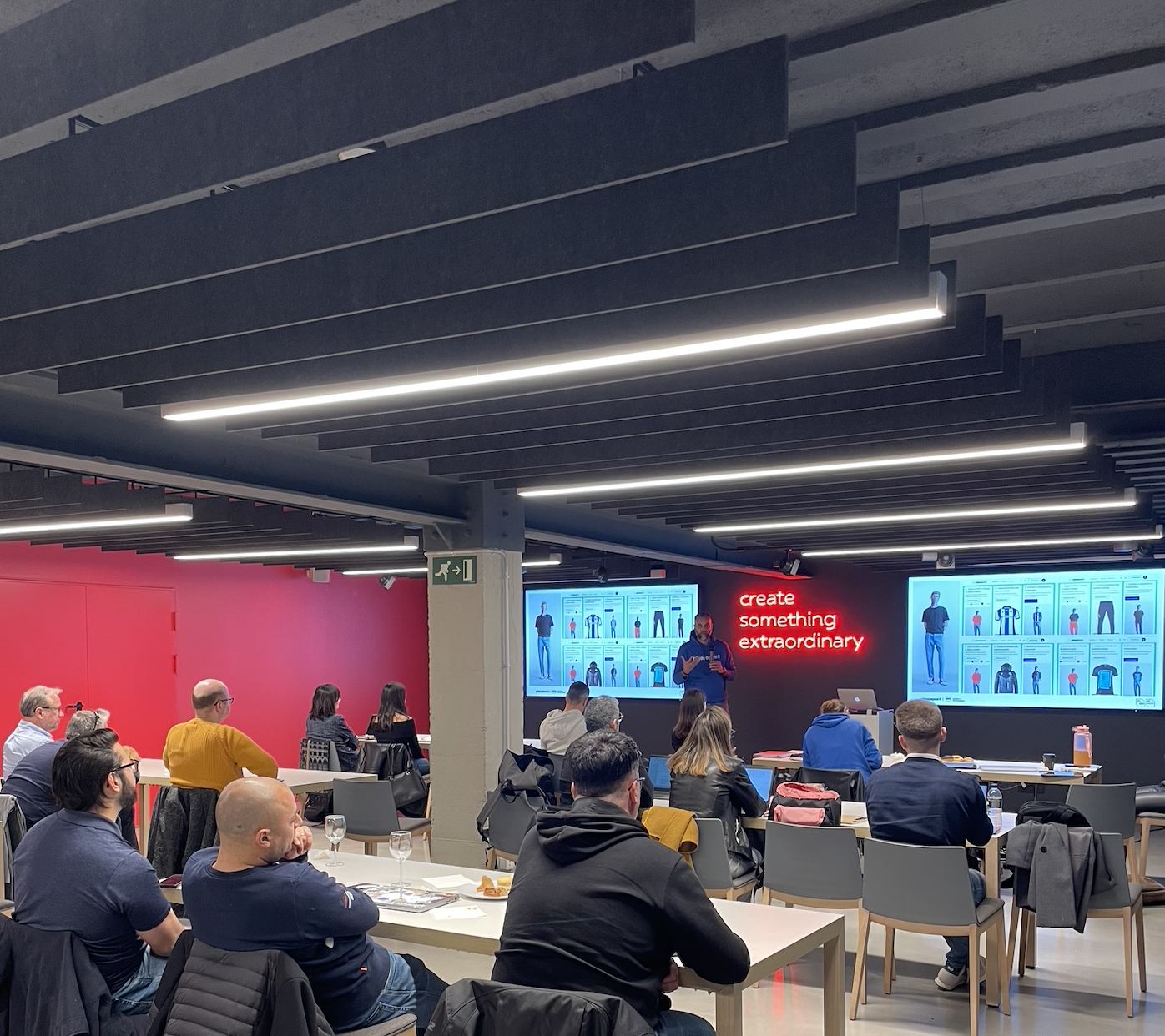
Generative artificial intelligence and predictive marketing: Event summary at AWS Barcelona offices.
On September 25th, we participated in the generative artificial intelligence and predictive marketing session organized by Amazon Web Services (AWS) at their offices in Barcelona.
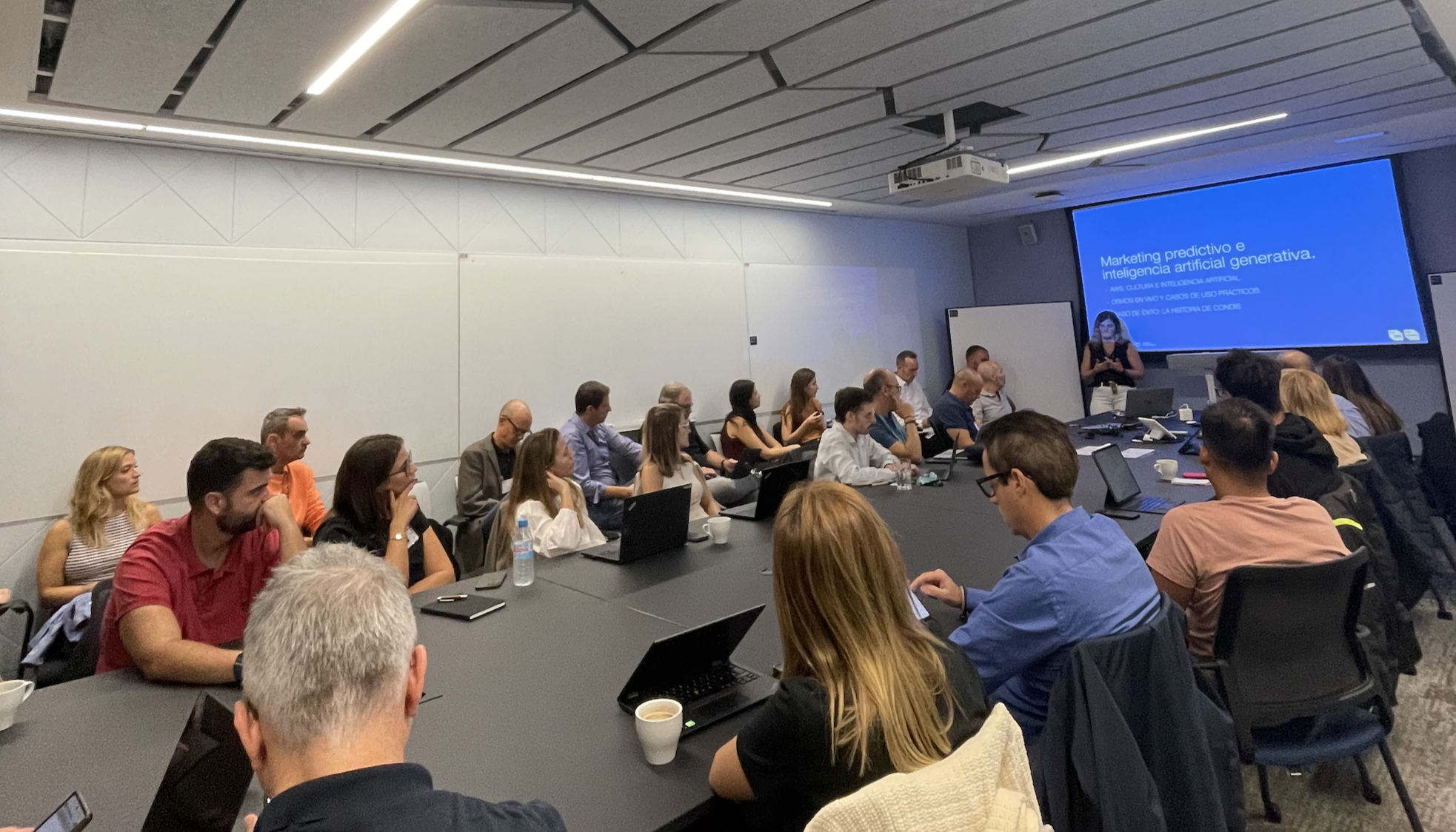
On September 25th, we participated in the generative artificial intelligence and predictive marketing session organized by Amazon Web Services (AWS) at their offices in Barcelona.
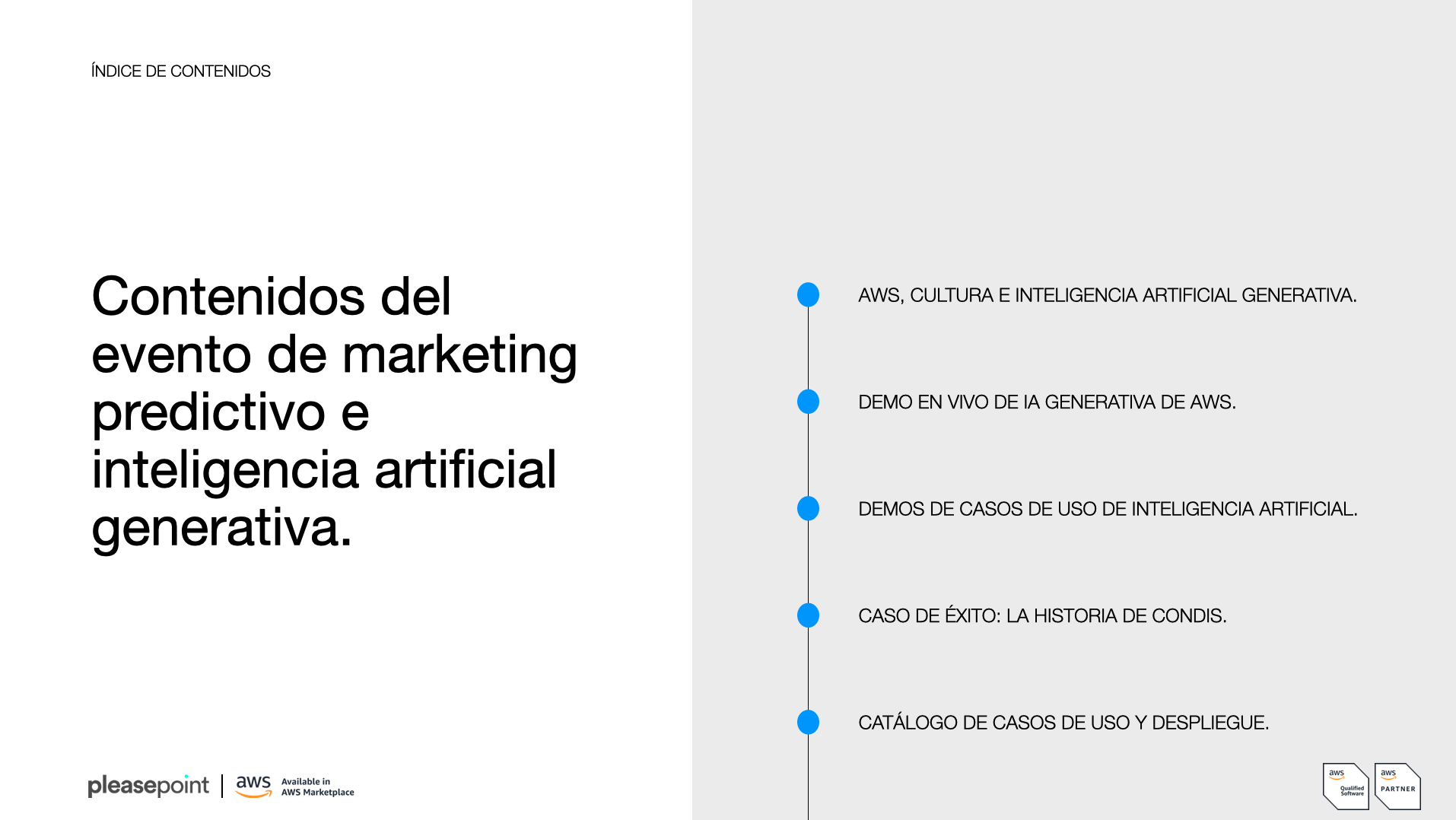
Throughout the morning, AWS and Pleasepoint experts took us on a journey filled with use cases applicable to all types of businesses, especially those focused on e-commerce and with a need to personalize the customer experience.
To conclude, Sergio Murillo, IT Manager at Condis, gave us an overview of Condis and in particular their Customer Intelligence project powered by Pleasepoint. You can see Condis' success story with Pleasepoint here.
Here is a summary of the event’s key moments.
- AWS, culture and artificial intelligence.
- Live demo of generative artificial intelligence
- Practical use cases and ROI calculation.
- Success story: Condis' experience.
- Next event in Madrid.
If you missed the event in Barcelona, we will repeat it on October 1st in Madrid. We will cover the same content, replacing Condis' success story with Norauto’s, presented by Bélen Pérez.
A few spots are still available, and the event is completely free.
AWS, culture and artificial intelligence.
Emilio Nestal from AWS opened the event with a presentation on Amazon's organizational culture and how it drives continuous innovation in their teams and products. For many, it was an eye-opener to see how one of the largest companies in the world internally manages its creative capacity and operational structure.
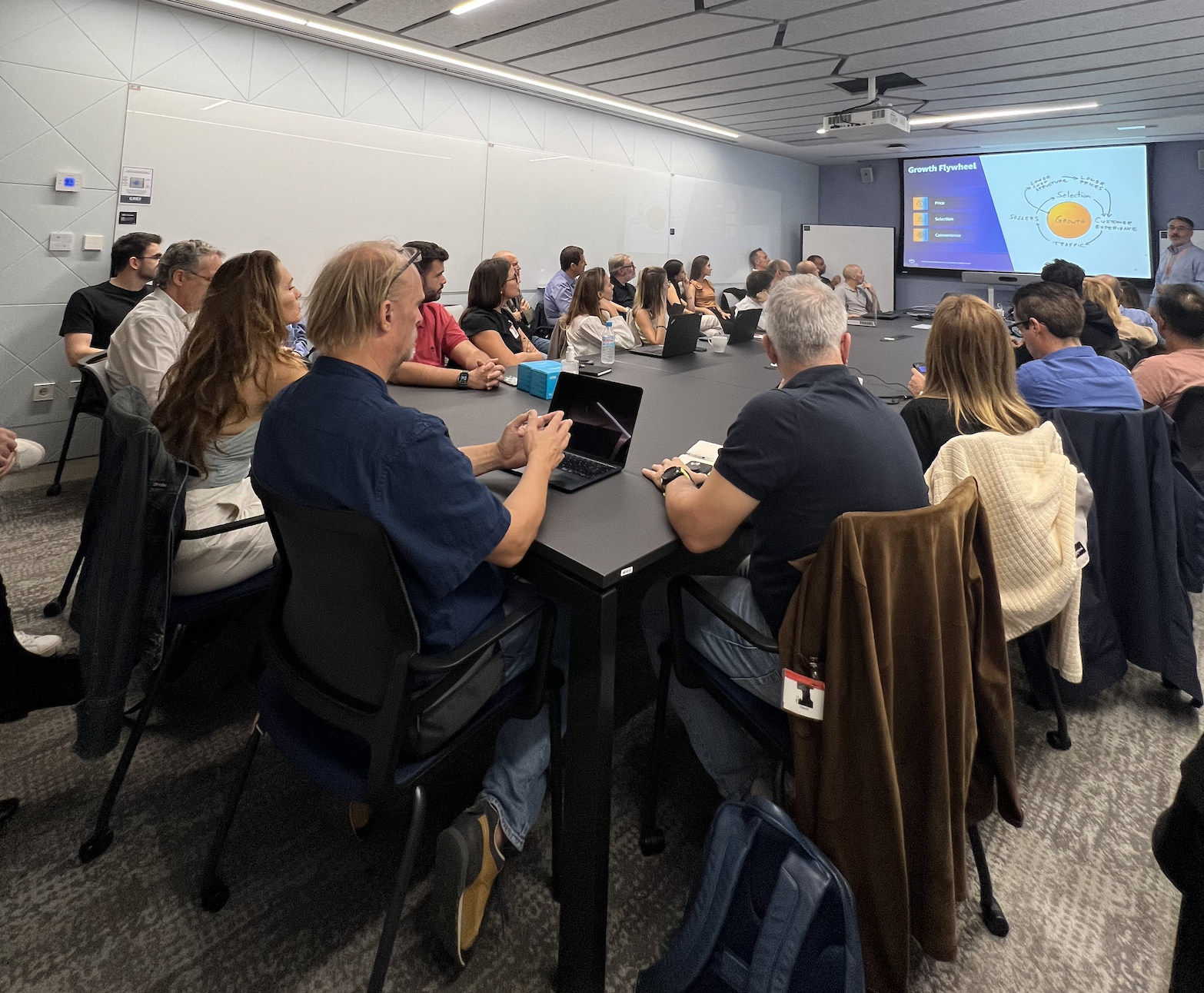
Here were some of the most interesting points:
- Innovation without fear of judgment: At Amazon, innovation is encouraged even if it's not initially understood. Often, disruptive changes can be hard to accept, but it's crucial to keep pushing boundaries.
- Compact and efficient teams: The best results come from small teams of 6 to 12 people. Additionally, within each team, one person is responsible for decision-making, which speeds up the process.
- No more PowerPoints: One interesting fact is that Amazon doesn’t use visual presentations in their internal meetings. Decision-making is based on written documents that justify the steps to be taken, all within the framework of the company’s 12 pillars.
- A meticulous hiring process: They only hire people who are at least better than 50% of the current employees. This way, they are constantly raising the bar of excellence within the company.
This unique organizational approach has been key to AWS becoming the giant it is today. It was fascinating to see how these cultural pillars can be applied to any company seeking to grow sustainably and innovatively.
Live demo of generative artificial intelligence.
One of the most anticipated moments of the event was the live demo conducted by Irene García, Solution Architect at AWS, which showcased the current possibilities of generative artificial intelligence. This technology is revolutionizing how we interact with data and generate personalized content.
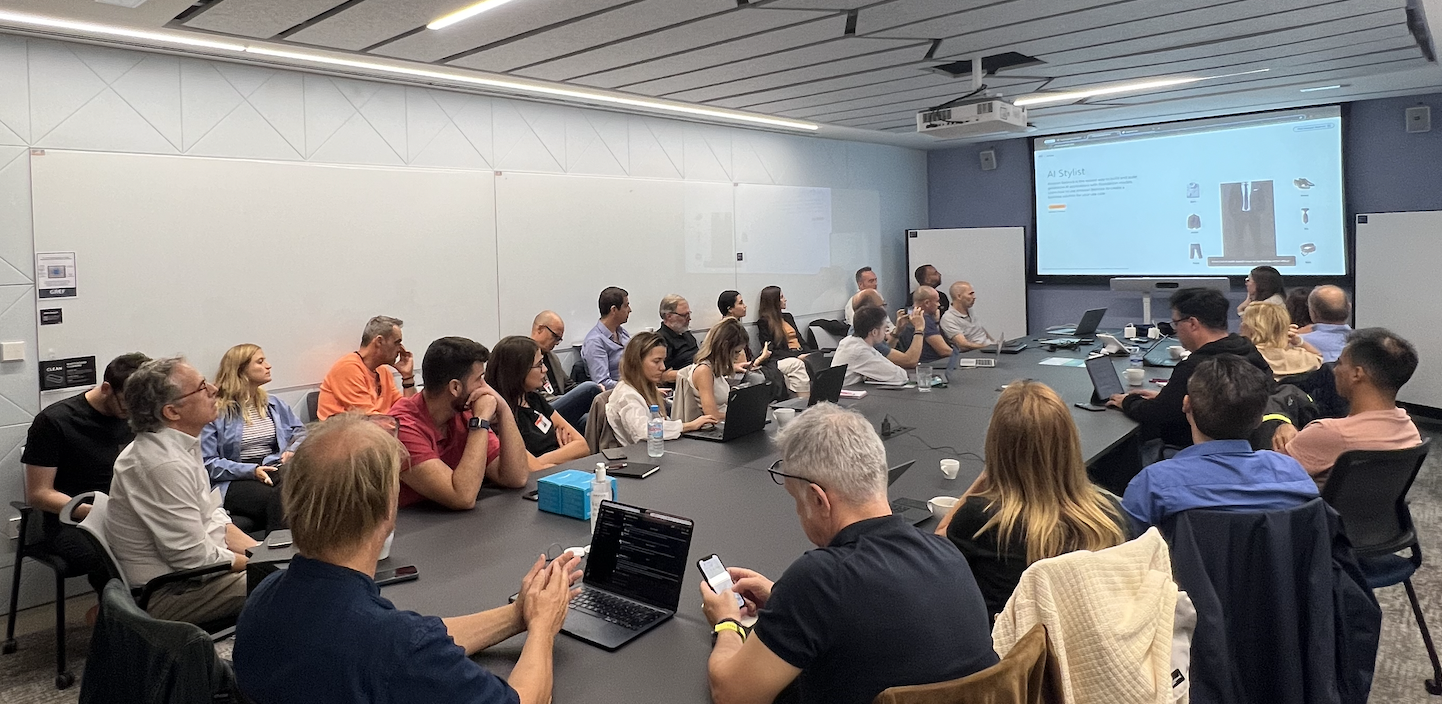
Irene's demonstrations were highly inspiring, and several key points are worth highlighting:
- The importance of prompts: Something as simple as a well-defined prompt can make all the difference in the results obtained. We learned some useful tricks to maximize the effectiveness of prompts to get the most relevant AI responses.
- Avoiding hallucinations: Generative AI runs the risk of producing responses that aren’t based on real data, known as "hallucinations". Irene showed us how embedded content within the prompts helps avoid these errors and obtain more accurate responses.
- Automatic product description generation: One of the most practical applications was seeing how AI can automatically generate product descriptions using both structured data and images. This significantly streamlines the process of creating product listings, especially in eCommerce.
- Product search through prompts: What happens when a customer searches for products using natural language? With a simple prompt like "I need to attend a meeting in New York next week, what do you recommend?", the AI can suggest products based on the user’s situation and preferences.
- Personalized emails: The demo concluded with examples of generating personalized emails for customers. In the context of financial products, Irene showed how AI is capable of generating emails offering products tailored to each user's specific needs.
These demonstrations made it clear that generative AI is a powerful tool for improving efficiency and personalization in any business process, especially in marketing and sales.
Practical use cases and ROI calculation.
During the session, Josep Malapeira and Pitu Sabadí from Pleasepoint gave us an in-depth look at how to maximize the use of existing data to personalize customer interactions. The key is that the data we already have can be transformed into precise actions, generating a direct impact on sales and customer satisfaction.
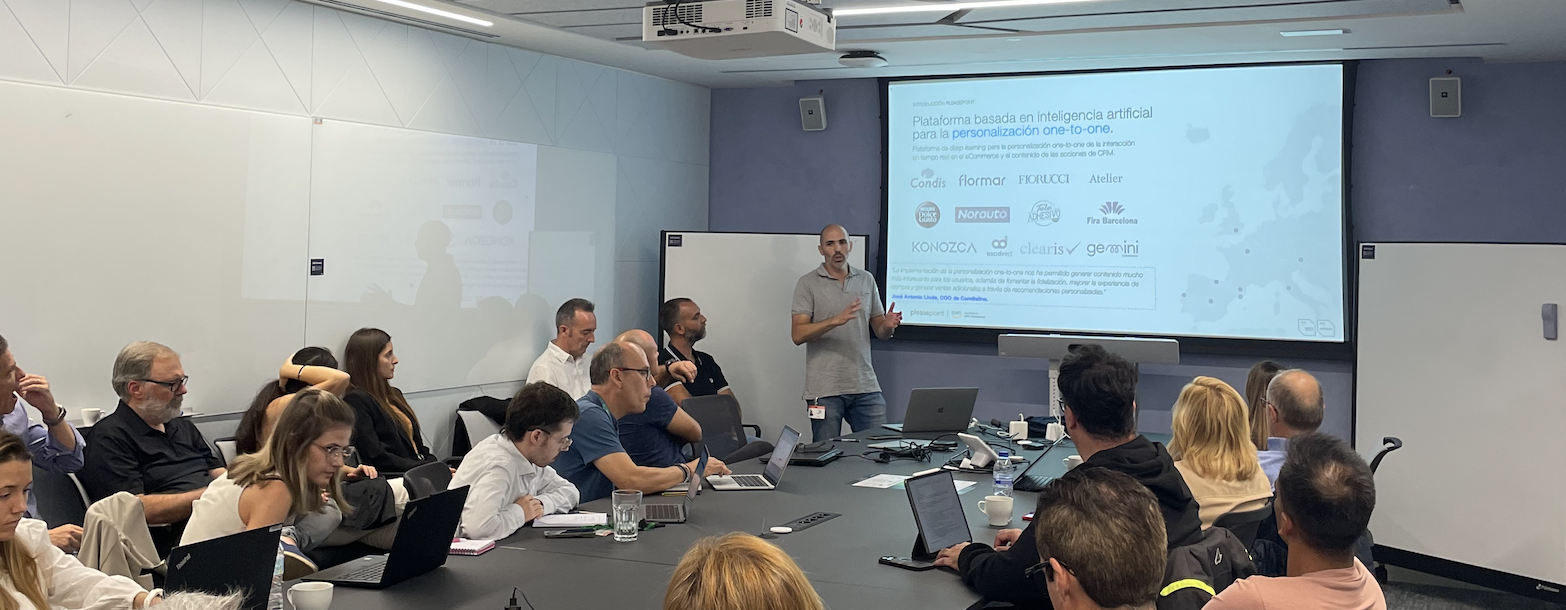
In this vein, we were presented with the different modules that make up the Pleasepoint platform and how each one can trigger very specific use cases in an eCommerce or CRM strategy.
Presentation of Pleasepoint's AI modules.
The various AI-based modules were introduced and are accessible in real-time as well as in data model format to enrich CRMs, databases, or any data repository.
- Lifecycle-based segmentation module: It allows for customer segmentation based on their stage in the lifecycle, from new to those at risk of leaving or loyal customers.
- Buyer-persona profile module: It helps identify different customer profiles based on their behavior and preferences, enabling more precise campaigns.
- One-to-one recommendation module: This module can provide personalized recommendations in real-time, based on the user's behavior.
- New AI Studio module: This was showcased as an enabler for creating specific generative AI models that enhance all previous actions, providing an extra layer of personalization.
Use cases for eCommerce.
Pleasepoint presented several practical examples of how the platform effectively personalizes the customer journey in an eCommerce:
- One-to-one personalization on the homepage: Upon entering the site, each user receives personalized recommendations based on their browsing and purchase history.
- One-to-one personalization on the product page (PDP): Complementary or alternative products are shown here based on the product the customer is viewing and their previous behavior.
- One-to-one personalization on product listing pages (PLPs): Each customer is highlighted with the most relevant products within the listing pages, based on their prior interests.
- One-to-one personalization in the cart: When the user reaches the cart, additional products relevant to what they are about to purchase are suggested, increasing the average ticket value.
Use cases for CRM
One of the most interesting demonstrations was how Pleasepoint integrates with Salesforce Marketing Cloud to trigger more advanced CRM strategies. Several practical use cases were highlighted, including:
- One-to-one personalization in product selection for newsletters: Each user receives personalized product recommendations within email campaigns, aligned with their purchase history and preferences.
- Additional personalized campaigns based on buyer-persona profiles: In addition to regular campaigns, users receive additional impacts with completely personalized content according to their profile and behavior.
- Customer journeys based on the customer's lifecycle stage: Customers receive communications and actions based on their stage in the lifecycle, optimizing loyalty and minimizing churn risk.
- One-to-one selection of the next best campaign or commercial action: This case allows the best available campaign to be automatically triggered for each customer based on their conversion probabilities and previous interactions.
Generative AI demos with AI Studio
Finally, one of the most engaging sections was the demonstration of generative AI through Pleasepoint's AI Studio, the new module that enables the use of foundation models to generate content in an automated and precise manner. Among the most impressive cases presented were:
- Generative AI for information retrieval on a site or repository: Attendees were able to see how AI can help users find precise answers in large information repositories, adding value to the customer experience.
- Generative AI for writing product descriptions: From structured information and an image, AI can generate accurate and attractive product descriptions, helping marketing teams automate tedious tasks.
- Generative AI for classifying products within categories: Using the foundational model, AI is capable of organizing and classifying products within hierarchies or concepts, optimizing eCommerce catalogs and improving the navigation experience.
Success story: Condis' experience.
To close the event, Sergio Murillo, IT Manager at Condis, gave us a detailed overview of the journey of Condisline, the first online supermarket in Spain. Condis' story is an inspiring example of how a company can adapt to changing times and, by using the right technology, make a significant impact in its sector.
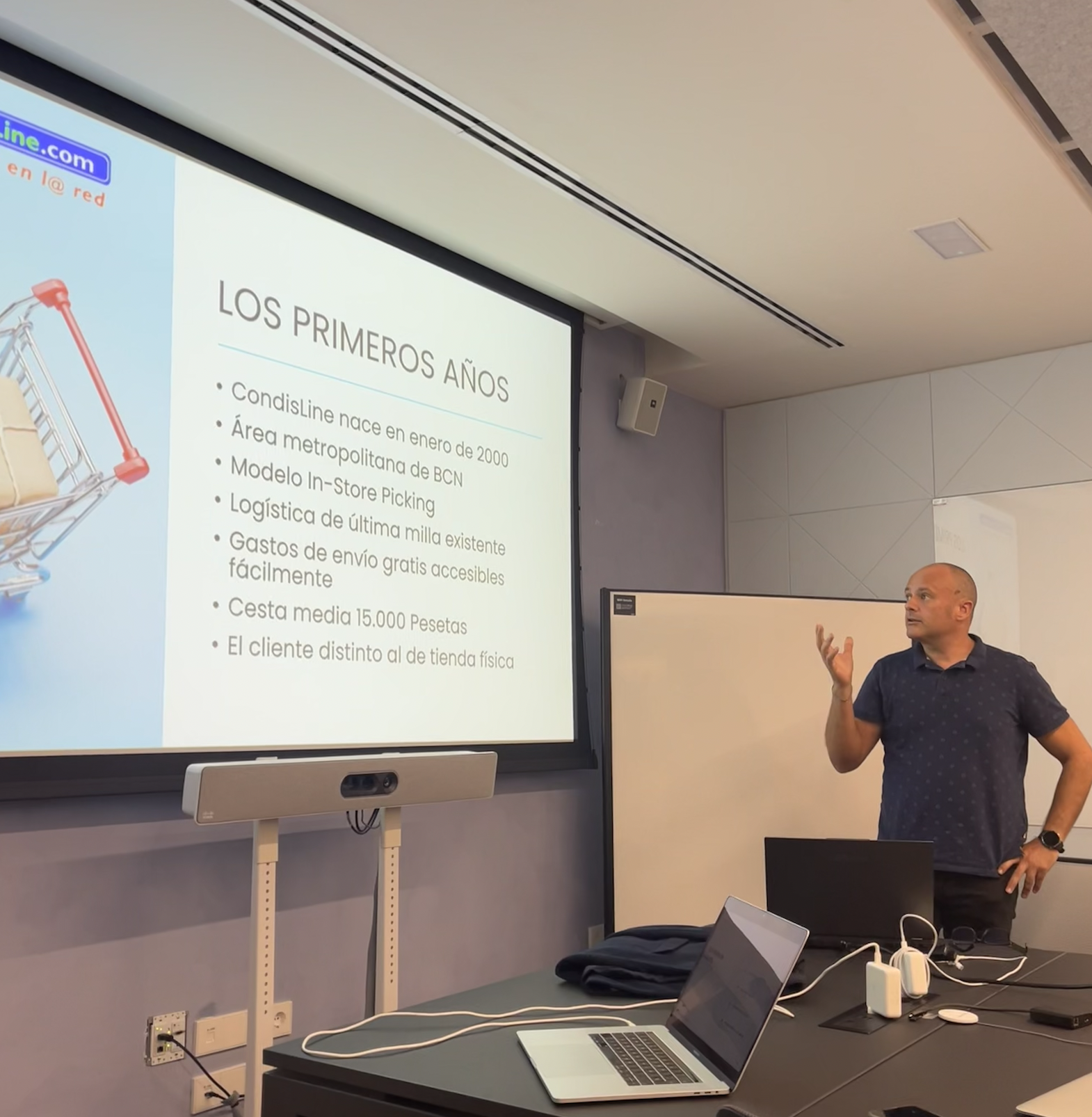
Among the most important milestones Sergio shared were:
- Exponential growth during the pandemic: Condisline experienced unprecedented growth during the COVID-19 pandemic, consolidating itself as one of the main players in the online supermarket market.
- First steps with AI over 15 years ago: In collaboration with the University of Girona, Condis began using artificial intelligence to identify patterns within their supermarkets. This initial step laid the foundation for future evolution.
- Partnership with Pleasepoint since 2015: Over the past few years, Condis has worked hand in hand with Pleasepoint to personalize their customers' shopping experience, achieving very positive results in terms of conversion and loyalty.
- Personalization in SFMC: Condis has integrated Pleasepoint's artificial intelligence to personalize both their newsletter strategy and the customer experience on their eCommerce platform. Today, personalization is applied on the homepage, product pages, and even in the shopping cart, leading to significant increases in conversion rates.
Next event in Madrid.
We would like to thank Vicky Jarrín from AWS for the excellent organization of this event.
If you missed it, don't worry, because on October 1st we will repeat the experience in Madrid, where we will feature Norauto's success story. There are still a few spots available.
This event promises to be just as enriching, if not more, than the one in Barcelona, so don’t hesitate to join us to continue exploring the fascinating world of generative artificial intelligence and predictive marketing.
We look forward to seeing you there!
También te puede interesar...
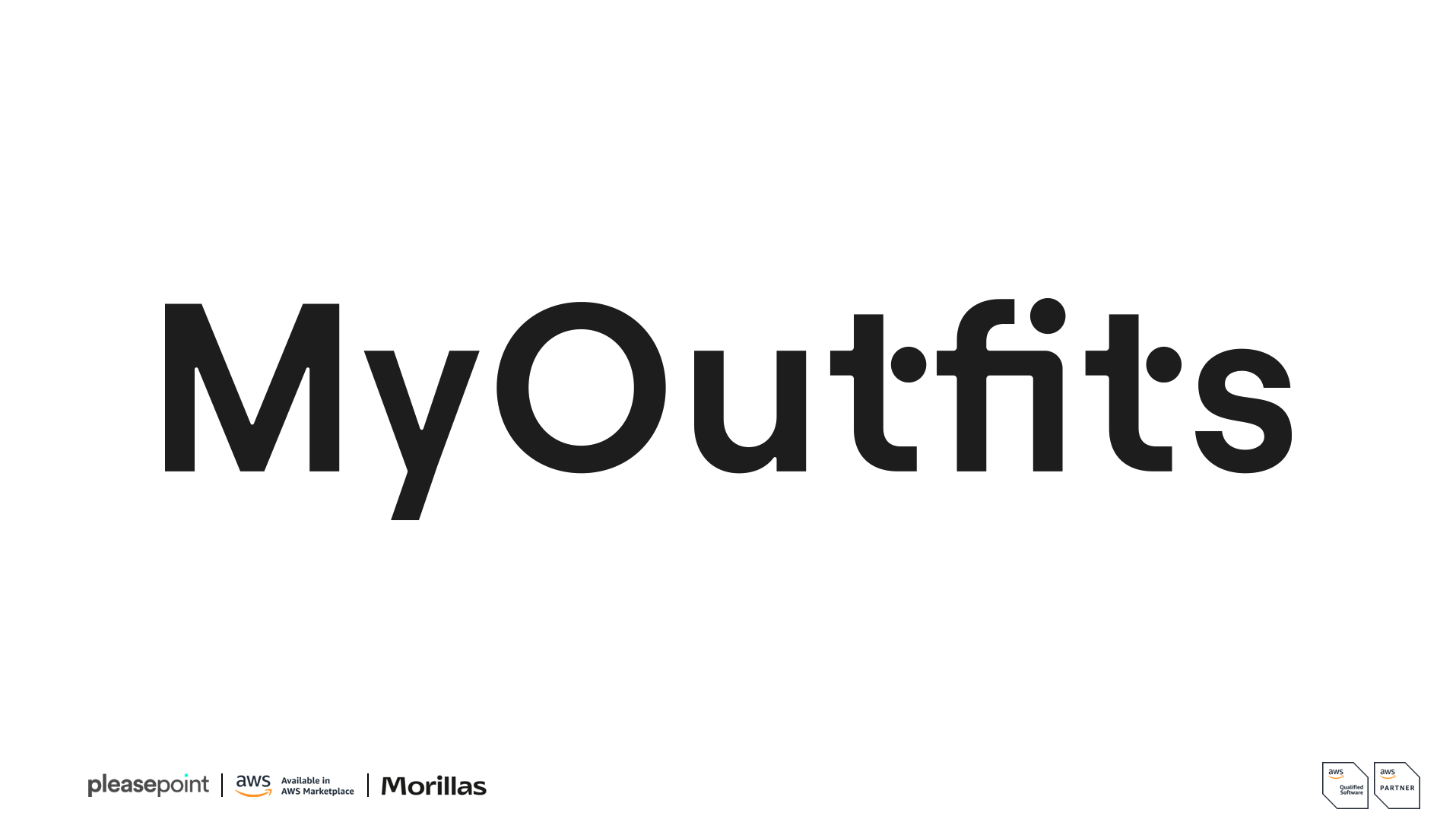
AWS Summit Madrid 2025: MyOutfits Launch
Pleasepoint and Morillas present the official launch of MyOutfits at AWS Summit Madrid 2025.

Success Case: How Norauto personalizes their campaigns.
Norauto is clear: They need a data strategy for their campaigns.
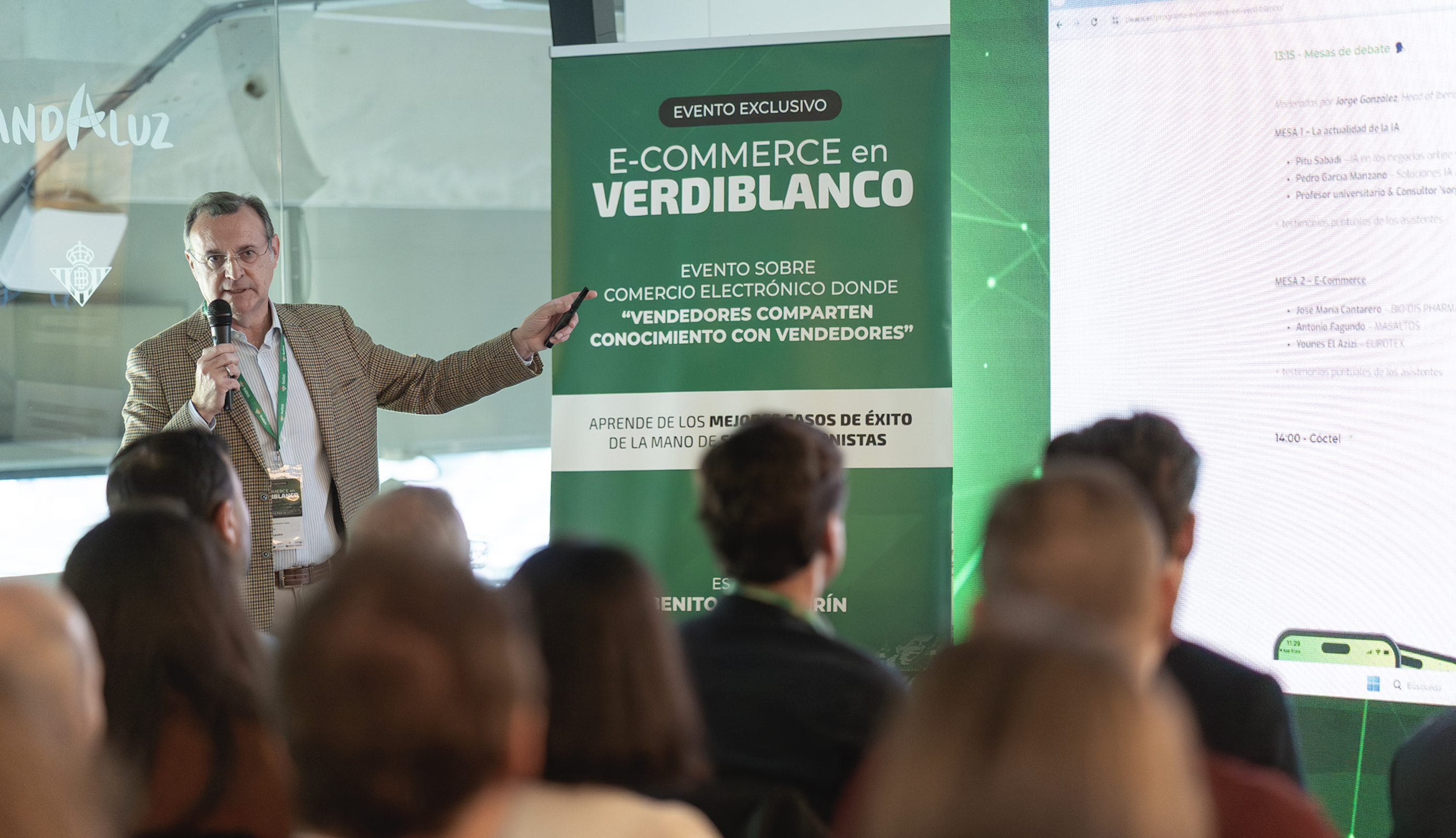
Ecommerce in Verdiblanco: One-to-One Recommendation (AI).
The goal is to offer a unique experience to fans at every touchpoint.
Don't miss the upcoming Pleasepoint events!
Join our events and discover the best AI use cases. Learn from experts, participate in live demos, and access success stories that will drive your business.
Amazon Web Services (AWS) Software Partners (ISV).
We are ISV (Independent Software Vendor) partners of Amazon Web Services (AWS) and have been selected for the ISV-Accelerate program.


"With Pleasepoint, we have moved from the traditional campaign management model to a more dynamic, segmented, and enriched customer model, personalizing CRM campaigns and improving the conversion of our e-commerce channel customers."
Josep Jarque
Digital Project Manager & IT Architect"The implementation of one-to-one personalization has allowed us to generate much more interesting content for users, as well as foster loyalty, improve the shopping experience, and generate additional sales through personalized recommendations."
Jose Antonio Linde
COO of Condisline"Throughout all these years of collaboration, we have closely witnessed the growth and evolution of the Pleasepoint platform. With predictive marketing, our results were very satisfactory. With one-to-one personalization, we have been able to enrich the information and design individual actions and offers. As a result, we are achieving greater customer retention and loyalty."
Alberto Elizondo
Digital Transformation at Real Sociedad"Working with Pleasepoint allows us to discover new customer purchasing behaviors, refine the implementation of campaigns based on their shopping journeys, and anticipate customer needs. Thanks to all this, we are improving personalization and enhancing the performance of our campaigns."
Belén Pérez Benavente
Customer Knowledge and Loyalty Manager at Norauto Spain"Pleasepoint has enabled us to take a leap in the analysis and segmentation of our customer base. Thanks to its personalization and predictive capabilities, we can now design more precise and efficient CRM campaigns based on purchasing behavior, optimizing our results, allowing us to innovate and add value."
Manuel Caamaño De Melo
Data Scientist at Norauto Spain"Thanks to Pleasepoint, our digital library is not only more intuitive and efficient, but also allows users to access relevant legal content with unparalleled speed and precision. This has transformed the way our clients interact with legal resources, offering a service that adapts to their needs almost naturally."
Òscar Gallud
CEO of Atelier LibrosOur clients vouch for us.













